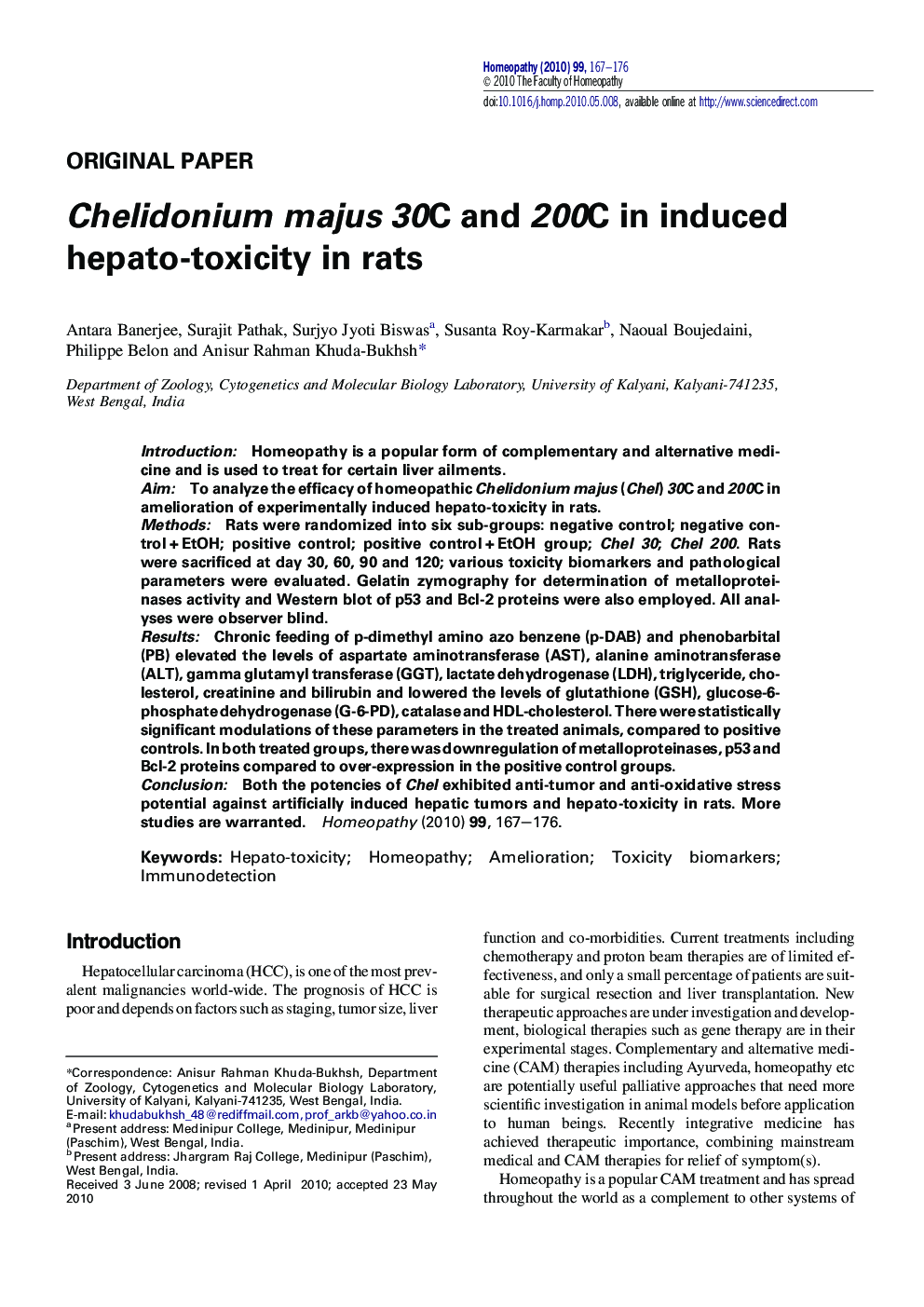| Article ID | Journal | Published Year | Pages | File Type |
|---|---|---|---|---|
| 2630083 | Homeopathy | 2010 | 10 Pages |
IntroductionHomeopathy is a popular form of complementary and alternative medicine and is used to treat for certain liver ailments.AimTo analyze the efficacy of homeopathic Chelidonium majus (Chel) 30C and 200C in amelioration of experimentally induced hepato-toxicity in rats.MethodsRats were randomized into six sub-groups: negative control; negative control + EtOH; positive control; positive control + EtOH group; Chel 30; Chel 200. Rats were sacrificed at day 30, 60, 90 and 120; various toxicity biomarkers and pathological parameters were evaluated. Gelatin zymography for determination of metalloproteinases activity and Western blot of p53 and Bcl-2 proteins were also employed. All analyses were observer blind.ResultsChronic feeding of p-dimethyl amino azo benzene (p-DAB) and phenobarbital (PB) elevated the levels of aspartate aminotransferase (AST), alanine aminotransferase (ALT), gamma glutamyl transferase (GGT), lactate dehydrogenase (LDH), triglyceride, cholesterol, creatinine and bilirubin and lowered the levels of glutathione (GSH), glucose-6-phosphate dehydrogenase (G-6-PD), catalase and HDL-cholesterol. There were statistically significant modulations of these parameters in the treated animals, compared to positive controls. In both treated groups, there was downregulation of metalloproteinases, p53 and Bcl-2 proteins compared to over-expression in the positive control groups.ConclusionBoth the potencies of Chel exhibited anti-tumor and anti-oxidative stress potential against artificially induced hepatic tumors and hepato-toxicity in rats. More studies are warranted.
